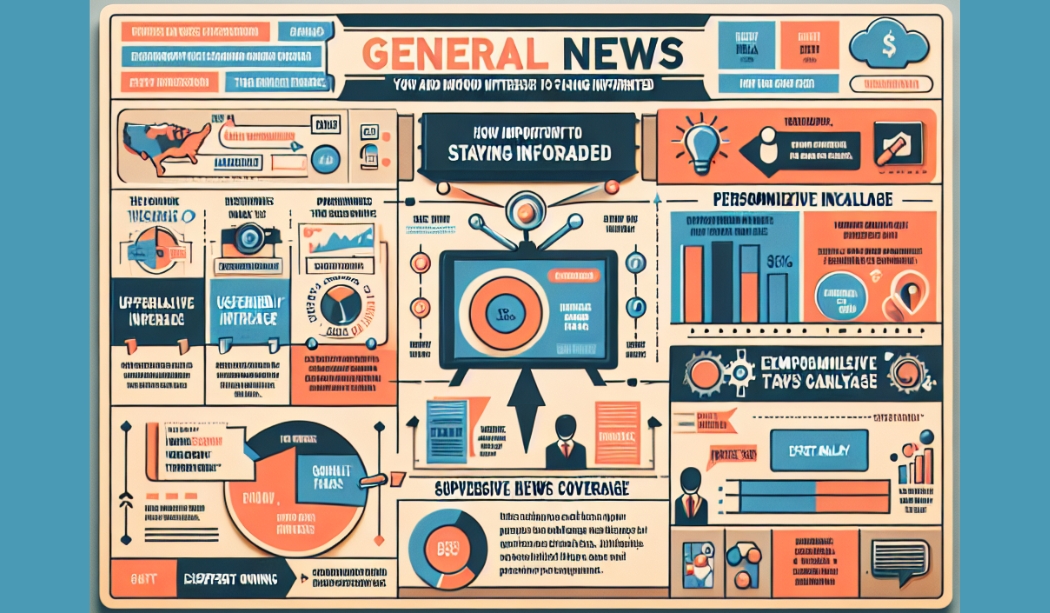News
Facebook Class Action Lawsuit Settlement: Everything Users Need to Know

Facebook Class Action Lawsuit Settlement
Facebook, now Meta, has long been a pillar of the social media world, connecting people globally and revolutionizing the way we interact online. Amid this dominance, the tech giant faced a significant legal battle that not only highlighted growing concerns over privacy but also resulted in a monumental class-action lawsuit settlement. At the forefront were the United States users who entrusted Facebook with their personal data, leading to a widespread debate on digital privacy and user consent.
In this detailed exploration, discover the ins and outs of the Facebook Class Action Lawsuit Settlement. From what the settlement encompasses to how you – as a Facebook user – can claim your share, we will break down the complex legal jargon into actionable information. Whether you’re just learning about the settlement or preparing to submit your claim, this comprehensive guide is your must-read resource.
Understanding Class Action Lawsuits and Privacy Concerns
Before we plunge into the specifics of the Facebook Settlement, it’s essential to understand the context of a class-action lawsuit and the privacy concerns at its core.
What is a Class Action Lawsuit?
A class-action lawsuit is a legal mechanism that allows a large group of people who have suffered similar harm to pursue a case against the defendant as a group, or “class.” This often occurs in scenarios where individual damages might be small but are significant when considered collectively. In cases where a company’s actions are challenged, a class action is a powerful tool to hold it accountable for its practices and protect consumers’ rights.
The Privacy Concerns Addressed
The Facebook class action lawsuit revolved around the company’s practices related to user privacy. Specifically, plaintiffs alleged that Facebook had engaged in vague and secretive data collection methods, resulting in the aggregation of an immense amount of user profile data, often without express consent. This data, claimed the plaintiffs, was used to bolster Facebook’s advertising capabilities, potentially in ways that infringed upon user privacy and consumer protection laws.
The $725 Million Settlement: What It Means for Facebook Users
The large-scale nature of a class action suit can lead to settlements of substantial monetary value, and the Facebook case was no exception. The court-approved settlement was reached for a staggering $725 million, a sum indicative of the seriousness of the privacy concerns and a testament to the case’s merit.
What the Settlement Covers
The broad-reaching settlement aims to compensate affected Facebook users in the United States who were part of the class for the alleged invasion of privacy. It serves not only as a financial resolution but also signifies the company’s commitment to reforming its data practices, including enhancing user consent mechanisms and providing more transparent information regarding data usage.
The Distribution of Funds
With a settlement amount this substantial, ensuring fair distribution is paramount. The process of determining individual payouts is complex and may involve various factors such as the length of a user’s membership, the extent of data shared, and the number of valid claims submitted. The court oversees this process to maintain accountability and equity in the distribution of the settlement funds.
Eligibility and Claim Process
To partake in the settlement, Facebook users who were in the US between May 24, 2007, and December 22, 2022 must meet specific criteria. The claim process, though passed, was a critical step for users to stake their legal rights and claim their share of the settlement. Users who missed the deadline should be aware of their eligibility and potential future settlements that may arise.
The Implications for Facebook’s Future
The resolution of the Facebook class action lawsuit has far-reaching implications for the company’s operations and for the global conversation surrounding data privacy. In adhering to the terms of the settlement, Facebook is mandatorily required to implement changes that align with the court’s directives, potentially shaping Facebook’s future and setting a precedent for other tech companies.
Navigating the Class Action Settlement Process
Settlements of this scale come with a multifaceted process that claimants must understand and follow to ensure they receive their portion of the agreed-upon funds.
Important Deadlines and Protocols
The claim submission deadline was August 25, 2023. While this date has passed, it is crucial for users to be vigilant about future notices and deadlines, as subsequent payouts or actions may be necessary. Understanding the protocols for submitting a claim accurately and by the specified date is the most immediate step in the settlement process.
How Payouts Are Determined
Payouts are calculated utilizing a predetermined matrix that takes into account various factors, ensuring that users receive a fair share commensurate with their level of exposure to Facebook’s data collection and usage practices.
Post-Settlement Notifications and Actions
After the settlement has been approved, claimants may receive notification of their acceptance or rejection. In the latter case, understanding the reasons behind the rejection and the process for appealing is critical. Claimants should remain informed and be prepared to take necessary actions post-settlement to secure their rights.
The Current Status of the Facebook Settlement
The class action lawsuit settlement process is dynamic, and the status of the Facebook case continues to evolve. It is critical for users to stay up to date with the latest developments and any additional requirements or opportunities that may arise.
Final Approval and Distribution Commencement
The Facebook settlement received final approval in October 2023, marking an official resolution to the legal proceedings and clearing the way for the distribution of funds to begin. Claimants can expect the process to move forward in compliance with the court’s timeline and directives.
Reviewing Claims and Potential Appeals
With the settlement approved, the next phase involves the review of submitted claims and the potential for appeals. Users should be prepared to respond to any notifications and take necessary steps under the guidance of the class action administrator or legal counsel.
The Aftermath for Claimants
Successful claimants may receive settlements in varying forms, whether by check, electronic transfer, or through designated accounts. The aftermath of the settlement signals a fresh chapter for affected users, recognizing their right to privacy and recompense for any perceived violations of this right by Facebook.
Maximizing Your Settlement Involvement
To ensure the Facebook class action lawsuit settlement provides the intended value to users, it is essential for affected individuals to maximize their involvement in the claims process and their understanding of their legal rights.
Gathering Necessary Documentation
For claimants, documentation can strengthen the validity of their claims. This might include Facebook user accounts, identifiers for the specific period stipulated in the settlement, and any additional records that support their participation and the data shared during that time.
Staying Informed About the Process
The settlement process can be convoluted, with various steps and documentation required. Claimants must stay informed about the process, any updates, and additional resources provided to assist them in their claim and the subsequent actions required.
Contacting Legal Assistance if Necessary
For those navigating the settlement process and its related activities, legal assistance can be invaluable. Whether clarifying claim details, addressing rejections, or advocating for appeals, having legal advice can guide claimants through the detailed aspects of the settlement.
The Broader Implications Beyond Payouts
While the monetary aspect of the Facebook settlement is sizable, the broader implications resonate with users, the company itself, and the digital landscape as a whole.
Setting Precedents in Privacy Law
The settlement serves as a modern precedent for privacy law, underscoring consumer rights in the digital era and highlighting the increasingly pivotal role the issue plays in consumer protection jurisprudence.
Challenging Data Collection Norms
By engaging in a high-profile lawsuit and subsequent settlement negotiations, the class action challenges the status quo of data collection and usage, prompting reevaluation of industry norms and best practices.
Influencing User Engagement and Expectations
The visibility and outcomes of the class action against Facebook are likely to influence how users engage with social media platforms and their expectations of privacy. The case may fuel a growing trend where users demand more control over their data and how it is used.
Understanding Your Next Steps in the Facebook Class Action Lawsuit
Receiving a settlement notification is a significant moment for users involved in the Facebook class action lawsuit. Understanding the implications and your next steps is pivotal to maximizing the value of the settlement.
Considerations for Distribution Methods
Users may have preferences regarding the method of settlement distribution, such as whether to receive a check or have funds directly deposited into designated accounts. These considerations can affect the convenience and subsequent use of the settlement funds.
Financial Planning and Use of Settlement Funds
Receiving a portion of the Facebook settlement has financial implications. Claimants should consider planning for these funds, whether it involves paying off debts, saving, investing, or allocating the settlement for specific financial goals.
Ongoing Monitoring of Privacy Measures
Even with the resolution of the class action lawsuit, ongoing monitoring of privacy measures is crucial for users. Staying informed about Facebook’s changes to data policies and any future settlements is an active approach to maintaining digital privacy and security.
Looking to the Future: Privacy, Social Media, and Settlements
The completion of the Facebook class action lawsuit settlement is not an endpoint; rather, it is a milestone in the broader conversation about privacy, social media responsibility, and the role of settlements in ensuring accountability.
The Ripple Effect of Settlements on Tech Companies
The legal actions and settlements involving tech companies like Facebook can create a ripple effect, influencing the behavior and practices of other industry players. This ripple can lead to a more robust, transparent, and user-centric approach to data management and privacy.
Anticipating Future Settlements and User Rights
The Facebook settlement is part of an evolving landscape where digital rights and consumer protection intertwine. Anticipating future settlements and understanding user rights is an important initiative for those who value their privacy in an increasingly connected world.
The Call for Increased Digital Literacy
Settlements of this nature underscore the importance of digital literacy in understanding the implications of using online platforms and the protection of personal data. With greater literacy, users are empowered to make informed decisions, challenge harmful practices, and advocate for their rights.
Making an Impact: Your Role as a Social Media User
Your role in the aftermath of the Facebook class action lawsuit settlement is that of an empowered social media user. Engage thoughtfully, advocate for your digital rights, and contribute to a digital environment that prioritizes user privacy and security.
Engaging with Digital Platforms Responsibly
Responsible engagement with digital platforms is a proactive step in maintaining privacy and ethical use of personal data. By reviewing and adjusting privacy settings, carefully choosing the information shared, and understanding individual control, users can significantly impact their online presence.
Advocating for Change and Transparency
The settlement is a testament to the power of collective action. By continuing to advocate for change and transparency from platforms like Facebook, users can ensure that their voices are heard and that their rights are respected.
Cultivating a Community Around Digital Privacy
Cultivating a community focused on digital privacy can create a supportive network for informed dialogue and action. By sharing knowledge, experiences, and resources, users can drive the conversation on privacy and engage with social media in ways that align with their values.
Key Takeaways and Resources for Facebook Users
In the wake of the Facebook class action lawsuit settlement, users are presented with key takeaways and crucial resources to guide them through the aftermath.
The Significance of the Settlement for Users
Understanding the significance of the Facebook settlement is an important aspect of post-settlement engagement. Recognizing the utility and value of the settlement in the context of privacy and user rights can shape further actions and decision-making.
Utilizing Official Channels and Resources
The official Facebook User Privacy Settlement website is a primary source for claimants, providing the latest information, resources, and guidance. Utilizing these official channels ensures accurate and up-to-date information for users navigating the settlement process.
Staying Informed Through Legally Mandated Notices
Legally mandated notices, such as those from United States District Court, provide necessary updates and information for involved users. Staying informed through these notices is vital for understanding the latest developments and potential next steps.
YOU MAY ALSO LIKE
The Ripple-Effect of the XRP Lawsuit News on Crypto’s Frontier: 2024 Update
In Conclusion:
As we conclude this in-depth exploration of the Facebook class action lawsuit settlement, it is clear that this monumental legal process is not just about the resolution of past grievances but also about setting precedents for the future. Your role as a responsible digital citizen is essential in ensuring that privacy remains a priority for social media platforms and tech companies at large.
Moving forward, remember that the Facebook settlement is not the end of the road but the beginning of a new chapter in digital privacy. By understanding the settlement process, asserting your rights, and maintaining vigilance over your digital presence, you contribute to a more secure and ethical online environment.
Prepare for a future where digital rights are not just a luxury but a universal expectation. Stay informed, stay vigilant, and most importantly, stay engaged. Your voice, your actions, and your knowledge are powerful catalysts for the change we all wish to see in the online world.
For more information, updates, and guidance on the Facebook class action lawsuit settlement, be sure to visit the official settlement website and remain connected with trusted legal sources. With actionable knowledge and an empowered mindset, you can make a meaningful impact as the digital landscape continues to evolve.
FAQs
- What prompted the Facebook class action lawsuit?
- The lawsuit was initiated due to concerns over Facebook’s handling of user data and privacy. Allegations centered on the misuse of personal information and failure to protect user privacy, leading to a breach of trust and violation of laws.
- How can I know if I’m eligible for a claim in the Facebook settlement?
- Eligibility for claims in the Facebook settlement is determined based on whether you were affected by the specific data privacy issues outlined in the lawsuit. The official Facebook User Privacy Settlement website provides detailed criteria for eligibility and instructions on how to submit a claim.
- What are the key benefits of the Facebook class action lawsuit settlement for users?
- The settlement emphasizes the importance of digital privacy, compels Facebook to implement more stringent data protection measures, and offers financial compensation to affected users. It also sets a precedent for how tech companies handle user data, promoting transparency and accountability.
- How can users ensure they are protecting their privacy on Facebook post-settlement?
- Users can protect their privacy by regularly reviewing and adjusting their privacy settings, being mindful of the information they share, and staying informed about Facebook’s data use policies. Utilizing privacy protection tools and resources offered by Facebook and third-party experts can also enhance user privacy.
- What should I do if I missed the deadline to submit a claim for the settlement?
- If you missed the deadline to submit a claim, unfortunately, you may not be eligible for compensation from this settlement. However, staying informed through the official settlement website and legal notices will keep you updated on any future opportunities or related legal actions where you might have recourse.
News
Stay Ahead with General News TheWeeklySpoonCom’s Comprehensive News Coverage

In today’s fast-paced world, staying informed is more important than ever. With the constant influx of information, it can be overwhelming to sift through the noise and find reliable news sources that cater to your interests. Enter TheWeeklySpoonCom, the ultimate news platform that offers everything you need to stay updated on a wide range of topics. Whether you’re a news enthusiast, an information seeker, or a digital native, this platform has something for everyone.
This blog post will introduce you to TheWeeklySpoonCom, highlighting its features, user-centric experience, commitment to trustworthy journalism, community-building efforts, and future plans. By the end of this article, you’ll understand why TheWeeklySpoonCom is the best choice for your news needs and how you can get started exploring the platform.
Comprehensive News Coverage General News TheWeeklySpoonCom
Diverse Topics
Politics
TheWeeklySpoonCom covers national, international, and local politics, ensuring you’re always in the know about elections, policies, and government decisions. From breaking news to in-depth analyses, the platform provides comprehensive political coverage to keep you informed about the issues that matter most.
Entertainment
Stay up-to-date with the latest movies, TV shows, music, celebrities, awards, and pop culture trends. TheWeeklySpoonCom’s entertainment section offers a diverse range of content, from celebrity interviews to reviews of the hottest new releases, ensuring you never miss a beat in the world of entertainment.
Technology
The technology section keeps you informed about the latest gadgets, software, AI, cybersecurity, startups, and industry trends. Whether you’re a tech enthusiast or a professional looking to stay ahead of the curve, TheWeeklySpoonCom has you covered with expert insights and cutting-edge news.
Health
From medical breakthroughs to wellness tips, mental health advice, nutrition, and fitness, TheWeeklySpoonCom’s health section offers valuable information to help you live a healthier life. Stay informed about the latest advancements in healthcare and get practical tips for improving your well-being.
Sports
Get the latest updates on major leagues, the Olympics, athletes, scores, and analysis. TheWeeklySpoonCom’s sports section provides comprehensive coverage of your favorite sports, ensuring you never miss a game or an important highlight.
In-depth Analysis
Expert Opinions and Commentaries
TheWeeklySpoonCom offers expert opinions and commentaries on current events, providing you with valuable insights and perspectives. These articles go beyond the headlines, offering thoughtful analysis and context to help you understand the bigger picture.
Data-Driven Insights and Trends
The platform utilizes data-driven insights to identify trends and patterns in various topics. By presenting this information in an accessible and engaging way, TheWeeklySpoonCom helps you stay informed about the latest developments and make informed decisions.
Long-Form Articles Exploring Complex Issues
For those who crave in-depth knowledge, TheWeeklySpoonCom offers long-form articles that explore complex issues in detail. These well-researched pieces provide a comprehensive understanding of the topics they cover, making them a valuable resource for anyone looking to deepen their knowledge.
Visual Storytelling
High-Quality Images, Videos, and Infographics
TheWeeklySpoonCom enhances its articles with high-quality images, videos, and infographics, making the content more engaging and visually appealing. These visual elements help to illustrate key points and provide a richer reading experience.
Interactive Elements to Enhance User Experience
The platform incorporates interactive elements, such as quizzes, polls, and interactive maps, to engage readers and enhance their understanding of the content. These features make the news more interactive and enjoyable, encouraging users to explore and engage with the articles.
User-Centric Experience
Personalized News Feeds
Tailored Content to Individual Preferences
TheWeeklySpoonCom uses advanced algorithms to tailor content to your individual preferences, ensuring you see the news that matters most to you. By analyzing your reading habits and interests, the platform delivers a personalized news feed that keeps you engaged and informed.
Benefits of a Customized News Experience
A personalized news experience means you spend less time searching for relevant content and more time reading the news that interests you. This customization helps you stay informed about the topics you care about, making your news consumption more efficient and enjoyable.
User-Friendly Interface
Intuitive Navigation and Easy-to-Find Information
TheWeeklySpoonCom’s user-friendly interface makes it easy to find the information you need. With intuitive navigation and well-organized sections, you can quickly access your favorite topics and discover new content that interests you.
Mobile Optimization for On-the-Go News Consumption
In today’s fast-paced world, staying informed on the go is essential. TheWeeklySpoonCom is optimized for mobile devices, ensuring you can access the latest news anytime, anywhere. Whether you’re commuting, traveling, or simply on a break, TheWeeklySpoonCom keeps you connected to the world.
Engaging Content Formats
Variety of Article Lengths and Styles
TheWeeklySpoonCom offers a variety of article lengths and styles to suit different reading preferences. From short news briefs to in-depth analyses, the platform provides content that caters to your needs, ensuring you always find something interesting to read.
Interactive Quizzes, Polls, and Reader Comments
Engage with the content and other readers through interactive quizzes, polls, and reader comments. These features make the news experience more interactive and allow you to share your opinions and insights with the community.
Trustworthy and Reliable Journalism
Commitment to Accuracy
Editorial Process and Fact-Checking Standards
TheWeeklySpoonCom is committed to delivering accurate and reliable news. The platform follows a rigorous editorial process and strict fact-checking standards to ensure the integrity of its content. By prioritizing accuracy, TheWeeklySpoonCom builds trust with its readers and maintains its reputation as a reliable news source.
Transparency in Reporting and Sourcing
Transparency is key to trustworthy journalism. TheWeeklySpoonCom is dedicated to transparent reporting, providing clear sourcing and attribution for all its articles. This commitment to transparency ensures readers can trust the information they receive and understand the context behind the news.
Expert Contributors
Profiles of Journalists and Subject Matter Experts
TheWeeklySpoonCom features profiles of its journalists and subject matter experts, showcasing their credibility and expertise. By highlighting the qualifications and experience of its contributors, the platform reinforces its commitment to providing high-quality, informed content.
Showcase Their Credibility and Expertise
TheWeeklySpoonCom’s expert contributors bring valuable insights and perspectives to the platform. By showcasing their credibility and expertise, TheWeeklySpoonCom ensures its readers receive well-informed, authoritative content from trusted sources.
Reader Feedback and Engagement
Importance of Audience Interaction
Audience interaction is crucial for continuous improvement. TheWeeklySpoonCom values reader feedback and encourages audience interaction through comments, surveys, and social media. By listening to its readers, the platform can better understand their needs and preferences.
How Feedback is Used to Improve Content
TheWeeklySpoonCom uses reader feedback to refine and enhance its content. By incorporating suggestions and addressing concerns, the platform ensures it meets the evolving needs of its audience and maintains a high standard of quality.
Community Building
Social Media Integration
Active Presence on Popular Platforms
TheWeeklySpoonCom maintains an active presence on popular social media platforms, engaging with followers and building a strong online community. By sharing news updates, behind-the-scenes content, and engaging with users, TheWeeklySpoonCom fosters a sense of connection and loyalty among its audience.
Engaging with Followers and Building a Community
TheWeeklySpoonCom actively engages with its followers on social media, responding to comments, answering questions, and participating in discussions. This engagement helps to build a vibrant community of news enthusiasts and fosters a sense of belonging among readers.
Reader Forums and Discussions
Creating Opportunities for Users to Connect and Share Opinions
TheWeeklySpoonCom offers reader forums and discussion boards where users can connect, share opinions, and engage in meaningful conversations. These forums provide a space for readers to discuss current events, exchange ideas, and build connections with like-minded individuals.
Moderation Guidelines to Maintain a Respectful Environment
To ensure a positive and respectful environment, TheWeeklySpoonCom enforces moderation guidelines for its forums and discussion boards. These guidelines promote constructive dialogue and prevent harmful behavior, creating a safe space for readers to engage and share their thoughts.
The Future of General News TheWeeklySpoonCom
Innovation and Technology
Exploring Emerging Trends in News Delivery
TheWeeklySpoonCom is committed to staying ahead of the curve by exploring emerging trends in news delivery. From leveraging artificial intelligence to enhance content recommendations to experimenting with new storytelling formats, TheWeeklySpoonCom continuously innovates to provide the best possible news experience for its readers.
Commitment to Staying Ahead of the Competition
By staying at the forefront of technological advancements and industry trends, TheWeeklySpoonCom ensures it remains a leader in the news industry. This commitment to innovation and excellence sets TheWeeklySpoonCom apart from its competitors and positions it as the go-to news source for information seekers and digital natives.
Expansion Plans
Potential New Features and Content Areas
TheWeeklySpoonCom has exciting plans for the future, including the introduction of new features and content areas. By expanding its offerings, the platform aims to cater to a broader audience and provide even more value to its readers.
Vision for the Platform’s Future Growth
The vision for TheWeeklySpoonCom’s future growth includes becoming the ultimate destination for reliable, engaging, and diverse news content. By continuously evolving and expanding its offerings, TheWeeklySpoonCom aims to solidify its position as a trusted news source and foster a loyal, engaged community of readers.
Conclusion
In today’s rapidly changing world, staying informed is more important than ever. TheWeeklySpoonCom offers a comprehensive, user-centric, and trustworthy news platform that caters to the diverse interests of its readers. With its commitment to accuracy, engaging content formats, and community-building efforts, TheWeeklySpoonCom provides an unparalleled news experience.
If you’re looking for a reliable source of news that keeps you informed and engaged, look no further than TheWeeklySpoonCom. Explore the platform today, subscribe, and join the community of news enthusiasts who trust TheWeeklySpoonCom for their daily dose of information.
FAQs
- What is TheWeeklySpoonCom?
TheWeeklySpoonCom is a user-centric news platform committed to providing reliable and engaging news content.
- How does TheWeeklySpoonCom ensure credibility?
It showcases profiles of expert contributors, highlighting their qualifications and experience to reinforce trust in its content.
- Why is reader feedback important for TheWeeklySpoonCom?
Audience interaction helps the platform understand user needs, allowing for continuous improvement of content quality.
- What role does social media play in TheWeeklySpoonCom?
Social media is used for engaging with readers, sharing updates, and building a strong online community around news content.
- What are TheWeeklySpoonCom’s expansion plans?
The platform plans to introduce new features and content areas to cater to a broader audience and enhance reader value.
News
Supporting carers with NDIS Respite Services in Brisbane

nity centers. The objective is to grant carers time to rest, go to do individual things, or appreciate a few recreational exercises.
In Brisbane, there are various NDIS-registered suppliers advertising break care administrations. These suppliers are prepared with experts who can cater to the particular needs of people with incapacities. The NDIS subsidizing can cover diverse sorts of relief care, such as crisis rest, which is significant amid unanticipated circumstances, or arranged relief, which can be planned in progress.
Role of Local Area Coordinators NDIS

Nearby range facilitators (LACs) play a significant part in the NDIS system. They act as the bridge between members, carers, and benefit suppliers. In Brisbane, LACs help people and their families understand the NDIS, creating back plans, and interfacing them with suitable administrations, counting rest care.
LACs are instrumental in making a difference carers explore the frequently complex NDIS system. They give profitable data on accessible administrations and support options, guaranteeing that carers are well-informed and can make the leading choices for their adored ones. Furthermore, LACs can help in organizing break care administrations that adjust to the person’s needs and inclinations of both the carer and the individual accepting care.
NDIS Provider Registration
For organizations and people looking to offer NDIS administrations, counting rest care, getting NDIS supplier enrollment is fundamental. This preparation guarantees that suppliers meet the tall measures set by the NDIS Quality and Shields Commission.
In Brisbane, the enrollment handle includes a few steps, including submitting an application, experiencing a quality and shields review, and illustrating compliance with NDIS hone guidelines.
Enrolled NDIS suppliers must adhere to strict rules to guarantee the security and well-being of members. This incorporates having fittingly prepared staff, keeping precise records, and delivering administrations that meet the personal needs of members. For carers looking for relief administrations, choosing an enlisted NDIS supplier offers peace of intellect, knowing that the provider is confirmed and meets rigid quality criteria.
The Unexpected Connection: Commercial Pressure Washing

Whereas talking about NDIS rest administrations and supplier enrollment, one might ponder how commercial pressure washing fits into the picture. The association lies in the all-encompassing approach to support services and community association. Numerous NDIS suppliers in Brisbane also offer auxiliary administrations that contribute to the general well-being of members and their families.
Commercial weight washing, for occurrence, can be a portion of keeping up a clean and secure environment for people with incapacities. Whether it’s guaranteeing that the outside of a break care office is clean or giving weight washing administrations to members’ homes, keeping up a clean environment is significant. A clean, well-maintained environment can altogether affect the mental and physical well-being of both carers and those they care for.
Case Study: A Day in the Life of a Carer

To demonstrate the down-to-earth effect of NDIS break administrations, let’s consider a day in the life of a carer in Brisbane. Jane could be an essential carer for her child, who is extremely introverted. Her day-by-day schedule is requested, and consistent consideration is required to meet her son’s needs. Whereas Jane finds her part satisfying, she regularly feels exhausted and requires a break.
Through the help of her local area facilitator, Jane learns almost the accessibility of respite care under the NDIS. She contacts a registered NDIS supplier in Brisbane and organizes a relief care specialist to look after her child for many hours each week. During this time, Jane can go to do individual errands, meet with companions, or unwind.
In expansion to rest care, Jane’s NDIS supplier offers auxiliary administrations, counting commercial weight washing. This benefit guarantees that Jane’s domestic is kept clean and secure, lessening her push levels and contributing to a more beneficial living environment. The combination of break care and extra bolster administrations enormously moves forward Jane’s quality of life, permitting her to proceed with giving the leading care for her child.
Final statement
Supporting carers with NDIS relief administrations in Brisbane is crucial for the well-being of both carers and those they care for. Relief care NDIS gives much-needed breaks, empowering carers to revive and keep up their well-being. Neighborhood region facilitators play an essential role in interfacing carers with these imperative administrations, whereas NDIS supplier enrollment guarantees that the administrations advertised are of the most noteworthy quality.
Consolidating auxiliary administrations like commercial pressure washing highlights the comprehensive approach to back, addressing various viewpoints of carers’ and participants’ lives. By leveraging these administrations, carers in Brisbane can continue their invaluable work with the affirmation that they are bolstered and esteemed.
News
The Role of a DUI Lawyer: Navigating the Complexities of Drunk Driving Cases

Driving under the influence (DUI) is a serious offense that carries significant legal and personal consequences. The complexities involved in DUI cases necessitate the expertise of a specialized attorney known as a DUI lawyer. These legal professionals play a crucial role in defending individuals charged with DUI, ensuring their rights are protected, and striving for the best possible outcomes. This article explores the multifaceted role of a DUI lawyer, the legal processes involved, and the importance of their expertise in navigating DUI cases.
Understanding DUI Charges
DUI charges arise when an individual operates a vehicle with a blood alcohol concentration (BAC) above the legal limit, which is typically 0.08% in most jurisdictions. However, DUI laws vary significantly from state to state, and even a BAC below the legal limit can result in charges if the driver is deemed impaired. DUI charges can also involve other substances, including illegal drugs and prescription medications that impair driving ability.
The Role of a DUI Lawyer
A DUI lawyer is a criminal defense attorney who specializes in handling DUI cases. Their primary objective is to provide legal representation to individuals accused of DUI, guiding them through the legal process and advocating on their behalf. Here are some key aspects of their role:
- Case Evaluation and Legal Advice:
Initial Consultation: A DUI lawyer begins by conducting an initial consultation to understand the details of the case. They assess the evidence, including police reports, breathalyzer results, and witness statements, to determine the strengths and weaknesses of the prosecution’s case.
Legal Guidance: Based on their evaluation, the lawyer provides the defendant with informed legal advice, explaining the potential consequences and available defense strategies.
- Investigation and Evidence Gathering:
Challenging Evidence: DUI lawyers meticulously examine the evidence against their clients. They scrutinize the procedures followed by law enforcement during the arrest, looking for any violations of the defendant’s rights. This includes assessing the accuracy and reliability of breathalyzer and field sobriety tests.
Collecting Evidence: Defense attorneys may also gather additional evidence, such as surveillance footage, witness testimonies, and expert opinions, to build a strong defense.
- Defense Strategy Development:
Negotiating Plea Bargains: In some cases, a DUI lawyer may negotiate with the prosecution for a plea bargain. This could involve reduced charges or alternative sentencing options, such as attending alcohol education programs or community service.
Trial Preparation: If the case goes to trial, the DUI lawyer prepares a robust defense strategy. This includes questioning the credibility of the prosecution’s evidence, cross-examining witnesses, and presenting evidence that supports the defendant’s innocence or mitigates their culpability.
- Court Representation:
Pre-Trial Motions: DUI lawyers file pre-trial motions to suppress evidence obtained unlawfully, which can significantly weaken the prosecution’s case.
Trial Advocacy: During the trial, the lawyer represents the defendant, presenting arguments, questioning witnesses, and challenging the prosecution’s evidence. Their goal is to create reasonable doubt in the minds of the jurors or judge.
The Importance of Specialized Expertise
The legal landscape of DUI cases is complex and constantly evolving. DUI lawyers possess specialized knowledge of state-specific DUI laws, scientific principles behind BAC testing, and the nuances of criminal defense. This expertise is crucial for several reasons:
- Navigating Legal Procedures: DUI cases involve intricate legal procedures, including administrative hearings for license suspension, pre-trial motions, and courtroom trials. A DUI lawyer’s familiarity with these processes ensures that the defendant’s rights are protected at every stage.
- Scientific Knowledge: Understanding the science behind BAC testing and impairment is essential for challenging the prosecution’s evidence. DUI lawyers often collaborate with expert witnesses, such as toxicologists and forensic scientists, to provide a robust defense.
- Mitigating Consequences: A DUI conviction can result in severe penalties, including fines, license suspension, mandatory alcohol education programs, and even imprisonment. DUI lawyers work to mitigate these consequences, striving for reduced charges, alternative sentencing, or case dismissal.
Conclusion
A DUI lawyer plays a pivotal role in the criminal justice system, providing essential legal representation to individuals charged with DUI. Their expertise in evaluating evidence, developing defense strategies, and navigating complex legal procedures is invaluable in ensuring fair and just outcomes for their clients. By understanding the intricacies of DUI cases and advocating on behalf of defendants, DUI lawyers uphold the principles of justice and protect the rights of those accused of driving under the influence.
-

 Tech5 months ago
Tech5 months agoExploring the Features of Innocams: The Future of Security
-

 Home Improvement3 months ago
Home Improvement3 months agoEco-Friendly Round Rug Options for Sustainable Living in NZ
-

 How-To Guides2 months ago
How-To Guides2 months agoComprehensive Guide to Cockwarming: Enhancing Intimacy and Connection
-

 Fashion3 months ago
Fashion3 months agoBlack Magic: The Elegance and Sophistication of Ultimate Homecoming Dresses in Black
-

 Apps and Games3 months ago
Apps and Games3 months agoDiscover Tickzoo: The Ultimate Platform for Video Content Lovers and Creators
-

 Business5 months ago
Business5 months agoUnlock Potential: Explore Pikruos Services
-

 Blog3 weeks ago
Blog3 weeks agoPossiblyethereal: Exploring the Ethereal Unveiling Abstract Ideas
-

 Entertainment4 months ago
Entertainment4 months agoDiving into the Audio-Visual Experience with AV Tub: Innovating Our World of Media
















